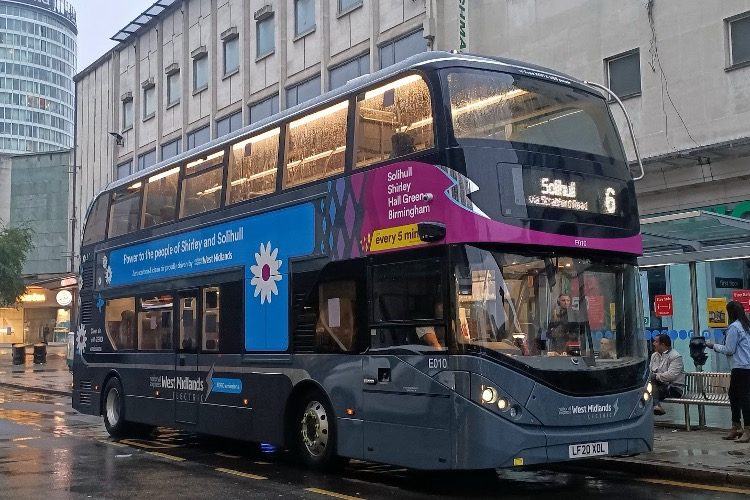
Nearly 1,800 electric buses valued at approximately £800 million are being recalled in the U.K. due to a risk of fire. The Chinese-made vehicles are said to be in danger of fire from their Hispacold HVAC system when left unattended. The manufacturer is reported to be looking for a solution to the problem.
The buses are prevalent in London, where more than 600 of the recalled models are operating. Manchester also operates more than 100 of the vehicles. Other affected cities include Coventry, Birmingham, Cambridge, Leeds, Glasgow, and Aberdeen.
The recall follows a year of high-profile incidents globally when electric buses, so crucial to cities’ “net zero” emissions ambitions, have caught fire, sometimes while in service. The incidents have fueled speculation as to whether EV technology is safe enough to be used so widely. In this case, the vehicles being recalled are sold by the Alexander Dennis corporation and the recall affects the BYD Enviro400 and Enviro200 electric buses.
In the short term, Alexander Dennis advises drivers to “switch off the Hipsacold HVAC system when the vehicle is left unattended. A permanent solution is being investigated.”
In London, electric bus fires require special attention and a “hazardous materials officer” must be on site.
According to the Daily Mail, “Currently when dealing with incidents involving buses, a minimum of two fire engines will be sent to the scene, although further units, including specialist teams will be deployed if lithium batteries are present.”
“Lithium batteries — which power EVs — are an emerging risk in London and we are learning all the time about the risks and challenges they pose and how best we can respond to them in a way that protects both the public and our firefighters,” an unnamed source told MailOnline.
But it’s supposedly not the battery in this case, but rather an issue with the HVAC system, the Driver and Vehicle Standards Agency (DVSA) in the U.K. reports.
“The manufacturer has identified issues with the heating system unit, rather than the battery or propulsion system, and we are working with them to ensure the defect is dealt with swiftly and in the best way possible way to ensure it meets the relevant statutory safety standards,” a DVSA spokesperson reported.
“As far as is currently known, the issue does not directly affect core driveline components such as electric motors or traction batteries. Neither is there currently any suggestion that the issue is linked to other bus fires that recently received media attention as these involved different vehicle types and technologies,” the spokesperson added.
Mayoral candidate Howard Cox wasn’t surprised by the news.
“I predicted a few years back that rushing into new idealistic based choices for our vital public transport infrastructure must be tempered,” Cox told MailOnline. “The rosy picture of the promise of zero emissions has clouded ill-informed politicos’ judgements to ignore safety issues and the cost of replacing reliable and proven safer lower cost diesel buses.”
Cox called for a moratorium on the use of all electric public transport until the safety issues can be resolved.
In the 1960s, consumer activist Ralph Nader nearly single-handedly forced the discontinuation of a new vehicle, the Chevrolet Corvair, because of safety concerns (some of them unfounded). Where are the consumer activists of today, and why aren’t they calling for an end to the use of electric buses until these safety concerns are reasonably addressed?



